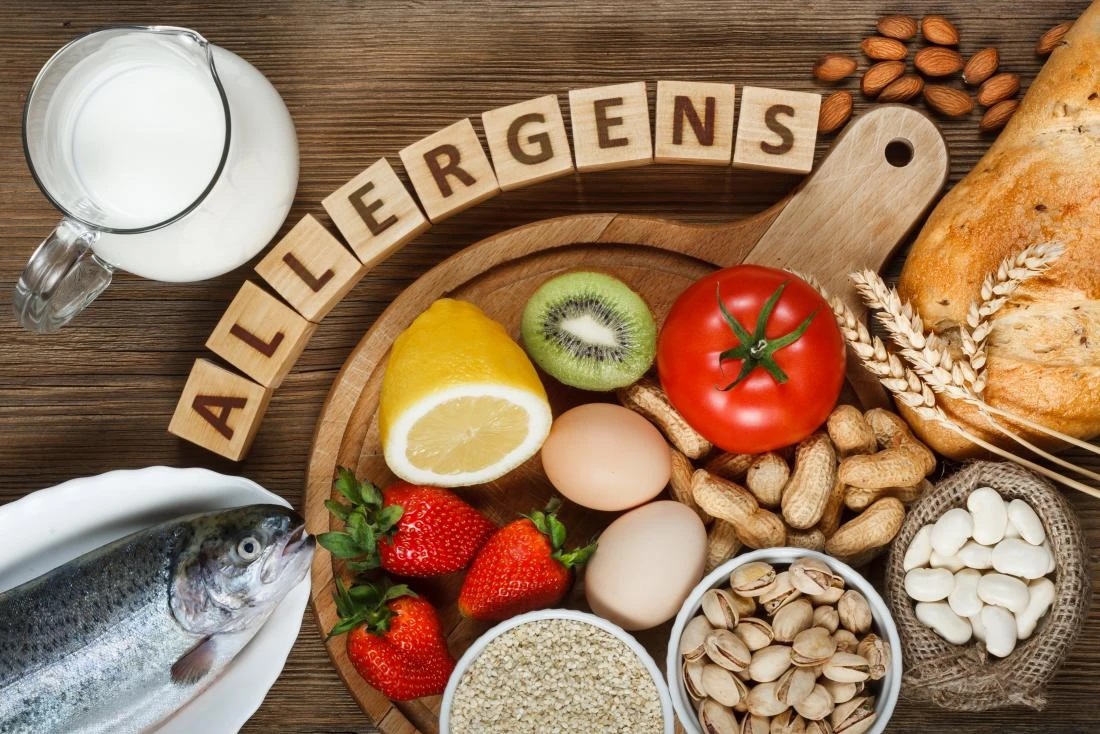The eight most common food allergies
Do you experience a runny nose, itchy eyes, a breathing problem or rashes when you eat certain foods?
About 30% of adults and 40% of children have allergies as reported by the Asthma and Allergy Foundation in the U.K.
Allergies are common. Any individual can develop allergies. People with severe allergies seek medical treatment. However, support from others can help control and deal with a chronic condition and improve lifestyle. Since foods cause life-threatening dangers, it is mandatory for food manufacturers to display allergy warnings on their product labels under the Food Allergen Labelling and Consumer Protection Act of 2004. Currently, there are 14 identified allergens but 90% of allergic reactions are caused by only 8 food items. So, what are these 8 foods? Read on to find out more.
What is a food allergy?
The immune system of our body constantly fights infections to keep us healthy. However, sometimes the immune system identifies proteins in certain foods harmful and reacts to protect you. This allergic reaction can cause mild or severe symptoms that affect the nose, eyes, skin, digestive system, throat, and respiratory system. Usually, people are prone to food allergies, but some have a highly sensitive immune system and the slightest intake of allergy-causing foods can instantly trigger a reaction.
Symptoms of food allergies
Symptoms appear within a few minutes or several hours after you dine. Reactions can be mild or life-threatening and get worse as you advance in age. Thus, if you currently experience a mild reaction to a food allergen, it will get severe in the future. Usually, food allergies begin in childhood, but some can appear in your adult life, too. Also, it is not necessary that you cannot be allergic to foods now that you enjoyed eating once. For example, you earlier enjoyed eating a crab, but today the thought of it makes you sweat.
Food allergy can affect any part of your body and hence the symptoms differ. Symptoms include:
- Rash or hives
- Vomiting, diarrhoea or stomach cramps
- Itchy eyes
- Dizziness
- Sneezing or stuffy, runny or itchy nose
- The itchy feeling in mouth and throat
- Swelling of tongue, lips or throat that pains when you talk
- Wheezing or shortness of breath
- Blue-coloured or pale skin
- Loss of consciousness

Foods that cause maximum allergies
People can react to any food; however, nine in every 10 allergies are caused by these following eight foods.
- Milk
- Wheat
- Eggs
- Peanuts
- Fish
- Soybeans
- Tree Nuts (almonds, walnuts, pine nuts)
- Shellfish (crab, lobster, shrimp)
Milk: About 80% of children are allergic to milk and its products, however, most of them outgrow it by ages six or seven. If you are allergic to cow’s milk, you should avoid cheese, yogurt, buttermilk, sour cream, butter, and cottage cheese.
Wheat: Gluten-containing foods and cereals like wheat, oats, rye, and barley cause wheat allergy. Most people are wheat intolerant but not necessarily allergic to it. Additionally, Coeliac disease is caused by gluten and can cause complications, if not managed. Thus, avoiding gluten is challenging as most foods contain this enzyme. However, shops offer gluten-free bread and other products to accommodate people with gluten allergies, today. Nonetheless, you must check the food labels when visiting the gluten-free section at a store to ensure your safety.
Eggs: Once again, 80% of children outgrow allergic reaction to eggs by age of six or seven. Since eggs are immunized against diseases, therefore, it is important to check with your doctor before immunizing your children.
Peanuts: Only 20% of children outgrow an allergy to peanuts, while 80% continue to struggle with it for life. People, prone to peanuts allergy should refrain from consuming peanuts and its products like peanut oil and peanut butter, and products that are cooked in peanut oil.

Tree Nuts: Tree nuts like pine nuts, walnuts, and almonds cause life-threatening reactions and only 9% of children outgrow nut’s sensitivity. People with nuts sensitivity should refrain from consuming salads, stir-fries, pesto and bread that contain nuts.
Soybeans: Often, vegetarian food products are made from soybeans – a substitute for meat protein. If you are allergic to legumes or peanuts, it is best to stay away from tofu, soy sauce, miso paste, and other oriental food products that contain soybeans. Also, foods cooked in soy oil or prepared from soy flour and milk can cause you a severe allergic reaction.
Fish: Any species of fish like cod, salmon, tuna, anchovies, haddock, and halibut can trigger an allergy. Also, foods prepared with fish stock, fish sauce, fish gelatine, and ground anchovies can onset an allergic reaction. However, you may be allergic to one species only and not others. For instance, you may be allergic to finned fish and not to shellfish. To determine which type of fish you are allergic to you must undergo a fish allergy test.
Shellfish: Allergy to crustaceans like crabs, scampi, lobsters and prawns can cause life-threatening symptoms. Often, people suffer from severe anaphylactic shock, if they encounter shellfish. Thus, it’s important to stay away from foods that are either prepared from crustaceans or contain some part of it.
Conclusion:
Living with food allergies or intolerance is challenging and therefore you must avoid food items prepared from ingredients that can onset your allergy; especially when you are dining outdoors. Remember, prevention is better than cure!
